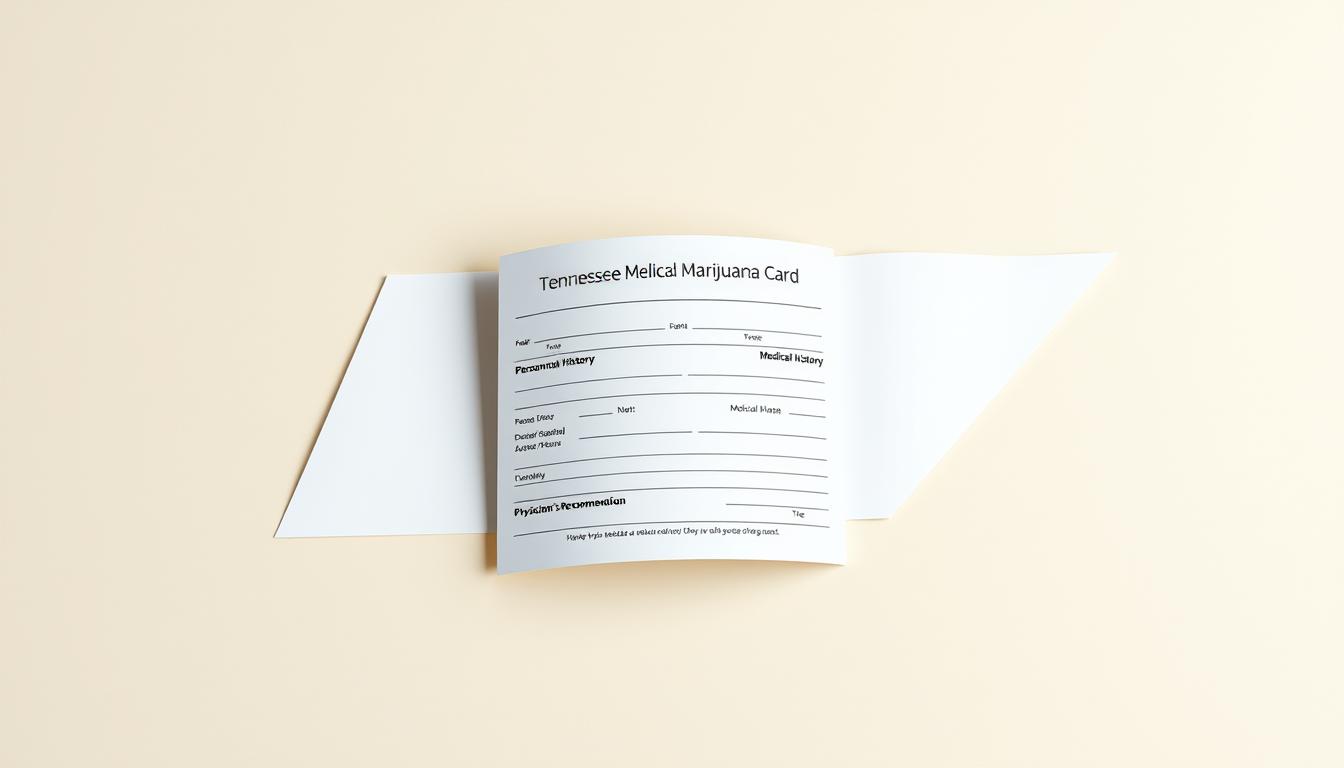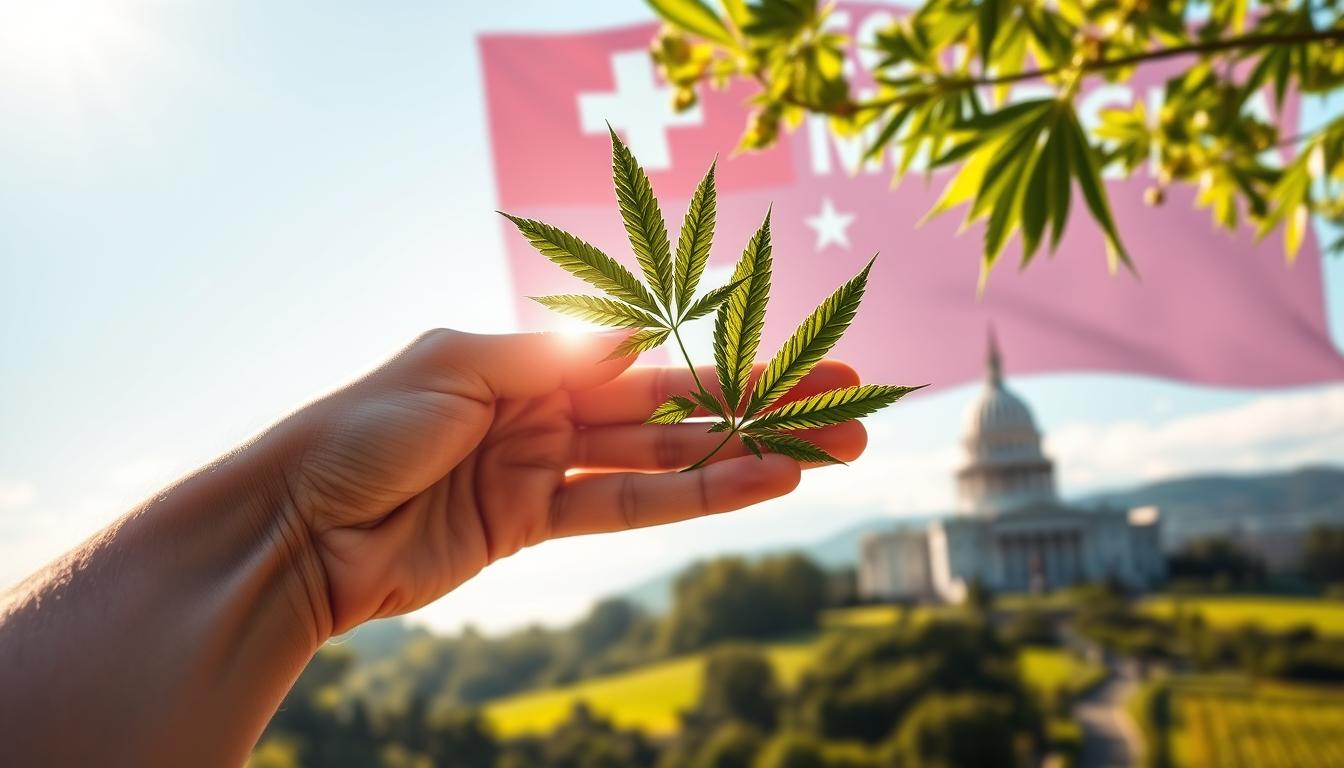Does North Carolina have medical marijuana legalized?. The debate over medical marijuana in North Carolina is intense. Supporters see its health benefits, while critics worry about misuse.
Right now, medical marijuana is not legal in the state. But, a big change is happening. The Eastern Band of the Cherokee Nation has started selling adult-use cannabis on their land. This means some people can buy cannabis, even though it’s banned everywhere else in the state.
This situation shows how tricky cannabis laws can be. It also points to the ongoing talks about its benefits and dangers.
Current Status of Medical Marijuana in North Carolina
Right now, the legal status of medical marijuana in North Carolina is up for debate. The state’s view on medical cannabis is complex. It’s shaped by laws and what people think.
Overview of Medical Marijuana Laws
North Carolina’s laws on medical marijuana are strict. There is no full medical marijuana program here, unlike many other places. But, there are efforts to make laws that allow medical cannabis use.
The laws we have now are limited. Any marijuana use is closely watched. The state has tried to make its laws more open to medical marijuana, but it’s moving slowly.
Recent Legislative Developments
Recently, there’s been a change in how the state views medical marijuana. In 2023, the North Carolina Senate passed a medical cannabis bill. This was a big step towards making it legal. But, the bill didn’t move forward in the House.
Even with the setback, polls show most people want medical marijuana to be legal. This public support could help change laws in the future.
- The Senate’s approval of the medical cannabis bill shows more lawmakers are on board.
- Most people want medical marijuana to be legal.
- Future sessions might see more attempts to pass medical marijuana laws.
The current state of medical marijuana in North Carolina shows a national trend. As more states allow medical marijuana, North Carolina might also change its laws.
History of Medical Marijuana Legislation in North Carolina
The history of medical marijuana in North Carolina is filled with efforts to pass laws. Despite the hurdles, there have been key steps towards legalizing medical marijuana.
Key Milestones
The North Carolina Compassionate Care Act was a major attempt. This act aimed to create a legal way for medical marijuana use. It allowed patients to get medical marijuana under specific conditions.
Challenges Faced
Despite these efforts, there have been big challenges. Lawmakers and regulatory concerns have been major hurdles. The debate has focused on safety, effectiveness, and abuse risks. Yet, advocates keep fighting for legalization, highlighting its benefits for patients.
The path to legalization is complex, involving many groups. Lawmakers, healthcare experts, and the public all play a role. Understanding the history of medical marijuana laws in North Carolina is key for everyone involved.
Comparison with Other States
Many states have legalized medical marijuana, making North Carolina’s rules a topic of interest. Each state has its own set of rules and conditions for using medical marijuana.
States with Legalized Medical Marijuana
California, Colorado, and Oregon were early adopters of medical marijuana laws. They have set the stage for other states. California lets patients grow their own, while Colorado focuses more on commercial sales.
Key states with medical marijuana laws include:
- California
- Colorado
- Oregon
- Washington
- New York
Differences in Legislation
Medical marijuana laws vary greatly from state to state. Some states have strict rules, while others are more open. Dr. Mark Kleiman said, “The different laws show the ongoing debate on how to best regulate medical marijuana.”
“The patchwork of state laws on medical marijuana creates a complex environment for patients and providers alike.”
North Carolina needs to learn from these differences when considering legalization. Knowing these variations helps in creating fair and effective laws.
Benefits of Medical Marijuana
Medical marijuana is gaining recognition for its health benefits. It helps with chronic pain and managing seizures. As laws change, its use for different health issues is being talked about more.
Medical marijuana is known for easing chronic pain. Research shows it can greatly reduce pain. This improves life for those with chronic pain.
Relief for Chronic Pain
Chronic pain affects millions globally. Medical marijuana is seen as a good treatment. It offers relief without the risks of opioid addiction.
“The use of cannabis for medical purposes has been shown to be effective in reducing chronic pain in patients, providing a much-needed alternative to traditional pain management medications.”
Treatment for Seizures
Medical marijuana also helps with seizures, mainly in epilepsy patients. Certain types of medical marijuana can lessen seizure frequency and severity.
- Reduces seizure frequency
- Effective for epilepsy treatment
- Offers a natural alternative to traditional seizure medications
In North Carolina, the laws on medical marijuana are changing. Knowing its benefits is key. Even with legal hurdles, its therapeutic value is worth exploring further.
Medical Marijuana vs. Recreational Marijuana
It’s important to know the difference between medical and recreational marijuana in North Carolina. Both involve cannabis, but they serve different purposes and have different rules.
Definitions and Differences
Medical marijuana is used to help with health issues. Doctors prescribe it. It has strict rules, like needing a special card.
Recreational marijuana is for fun, not for health reasons. It doesn’t need a doctor’s note.
Key differences include:
- The purpose of use: Medical marijuana is for therapeutic relief, while recreational marijuana is for personal enjoyment.
- Regulations: Medical marijuana is subject to stricter regulations, including prescription requirements.
- Legal status: While medical marijuana is legal in some states with a prescription, recreational marijuana’s legality varies by state.
Public Perception
People have different views on medical and recreational marijuana. Many see medical marijuana as a needed treatment. Others think recreational marijuana should be controlled because of its risks.
“The distinction between medical and recreational marijuana is not just legal; it’s also about the intent behind its use.” –
What people think about marijuana depends on their knowledge, the laws, and cultural views.
In North Carolina, understanding these differences is key to making good laws that help people.
Medical Conditions Approved for Treatment
The North Carolina Compassionate Care Act aims to help patients with serious health issues. It covers various debilitating medical conditions with medical marijuana treatment.
Qualifying Conditions
Several medical conditions qualify for medical marijuana treatment under the proposed law. These include:
- Cancer: Patients undergoing cancer treatment may use medical marijuana to alleviate symptoms such as pain and nausea.
- Epilepsy: Medical marijuana has been shown to reduce the frequency of seizures in patients with epilepsy.
- Post-Traumatic Stress Disorder (PTSD): Veterans and others suffering from PTSD may find relief from symptoms with medical marijuana.
Other conditions like chronic pain, multiple sclerosis, and certain neurological disorders may also qualify. The state’s medical board will decide on these conditions.
Application Process for Patients
To access medical marijuana, patients must follow an application process. It involves several steps:
- Consultation with a healthcare provider to determine eligibility.
- Obtaining a certification from the healthcare provider.
- Submitting an application to the state’s medical marijuana registry.
- Receiving a medical marijuana card, which allows patients to purchase cannabis from licensed dispensaries.
The application process ensures medical marijuana is used responsibly. It’s for those who have a legitimate medical need.
As the legislation evolves, it’s vital for patients and healthcare providers to stay updated. This knowledge helps ensure access to medical marijuana legally and safely.
Regulatory Framework
In North Carolina, the rules for medical marijuana aim to meet patient needs while keeping everyone safe.
Several groups help manage medical marijuana. This includes the state’s medical board and healthcare providers. They make sure medical marijuana is used right.
North Carolina’s Medical Board Involvement
The North Carolina Medical Board watches over doctors who suggest medical marijuana.
Key Responsibilities:
- Licensure of healthcare providers
- Monitoring compliance with state regulations
- Investigating complaints against healthcare providers
This helps ensure doctors follow state rules. It keeps patients safe.
Role of Healthcare Providers
Healthcare providers are key in the medical marijuana system. They decide if patients can use it.
Their role involves:
- Evaluating patients to determine if they qualify for medical marijuana
- Recommending medical marijuana as a treatment option
- Monitoring patient outcomes
Healthcare providers make sure medical marijuana is used correctly. This follows state laws and medical standards.
Accessing Medical Marijuana in North Carolina
North Carolina’s medical marijuana program aims to help patients find relief. But, getting into it can be tricky. It’s key to know how to get a medical marijuana card and the rules around it.
Licensing and Registration Processes
To start, you need to understand the steps for getting a card. Licensed healthcare providers are important here. They can suggest medical marijuana for their patients. You must have a qualifying medical condition to register.
Getting registered involves a few steps. You’ll need to apply with the right documents. This includes proof you live in North Carolina and a doctor’s note. Make sure your info is right to avoid delays.
Medical Marijuana Card Requirements
To get medical marijuana, you need a card. You must live in North Carolina, have a qualifying condition, and get a doctor’s approval.
“The medical marijuana card is a key document for buying medical marijuana from licensed shops,”
explained a spokesperson for a leading group.
Getting a card means applying with the right papers and waiting for approval. Once you get it, you’ll need to renew it when it expires.
- You’ll need proof of residency and a doctor’s note.
- The health department handles the application.
- You’ll need to apply again when your card runs out.
Advocacy for Medical Marijuana Legalization
Many groups are pushing for medical marijuana legalization in North Carolina. They aim to spread the word about its benefits. They also work hard to change laws.
Key Advocacy Groups
Several groups lead the fight for medical marijuana in North Carolina. The Marijuana Policy Project is a key player. Other groups include local chapters and grassroots movements.
- The Marijuana Policy Project, known for its efforts in reforming marijuana laws across the United States.
- Local advocacy groups that focus on the specific needs and challenges of North Carolina residents.
- Grassroots movements that mobilize community support for medical marijuana legalization.
Campaigns and Initiatives
These groups run campaigns and initiatives to inform people and lawmakers. They hold events, lobby, and run public awareness campaigns. This is to build support.
- Public awareness campaigns to educate North Carolinians about the medical benefits of marijuana.
- Lobbying efforts aimed at influencing state legislators to support medical marijuana legalization.
- Community events that bring together supporters and provide a platform for discussion and advocacy.
The efforts of these groups are vital. They help shape public opinion and push for law changes. As the movement grows, we can expect more efforts to legalize medical marijuana in North Carolina.
Federal vs. State Laws
The difference between federal laws banning marijuana and state laws allowing it is a big problem. Even though more states are legalizing it, marijuana is a Schedule I drug at the federal level. This makes the legal situation very complicated.
The Challenge of Federal Prohibition
The federal ban on marijuana stops medical marijuana users and providers from getting bank services and financial help. It also limits research into marijuana’s benefits because scientists face strict rules when studying Schedule I drugs.
This law also causes confusion and fear among patients and doctors. It might stop them from using medical marijuana, even in states where it’s legal.
Implications for Medical Marijuana Users
For those using medical marijuana, the fight between federal and state laws is a big deal. Patients might have trouble when traveling with their medicine or getting it in a legal state if they live in a banned one.
The federal ban also affects the quality and safety of medical marijuana. Without federal rules, the quality and what’s on the labels can vary a lot.
To deal with these issues, medical marijuana users need to know the laws in both their state and the federal level. Knowing the laws helps patients make better choices about their treatment.
Future of Medical Marijuana in North Carolina
North Carolina’s view on medical marijuana is changing. New laws might be coming soon. The talks and efforts in the legislature are key to the future of medical cannabis here.
Legislative Developments
The North Carolina legislature will keep talking about legalizing medical marijuana. They’ve already introduced bills to make the state’s laws better. They’re looking at a few important things:
- Expansion of Qualifying Conditions: They might add more conditions that can be treated with medical marijuana.
- Regulatory Framework: They want to create a detailed plan for growing, selling, and using medical marijuana.
- Licensing for Businesses: They’re working on a way for businesses to get licenses to be part of the medical marijuana industry.
Community and Stakeholder Perspectives
Many people are talking about medical marijuana in North Carolina. Patients, doctors, and lawmakers all have their say. Their views are important for the future of medical cannabis laws.
Patient Advocacy Groups want more people to have access to medical marijuana. They say it helps with chronic pain and epilepsy. But some lawmakers are careful. They want strict rules to make sure it’s used safely.
Finding the right balance is a big part of the discussion. It’s about giving people who need it access to medical marijuana while keeping it safe. As laws change, North Carolina’s rules for medical cannabis will likely get a lot clearer in the next few years.
Resources for Patients and Caregivers
Patients and caregivers in North Carolina can find many resources to help them. It’s important to know the state’s rules for using medical marijuana.
Clinics and Specialists
Finding the right clinics and specialists is key for patients. Many healthcare providers in North Carolina offer help and advice on using medical marijuana. These clinics have staff who know the state’s rules well.
Support and Education
Support groups and educational materials are very helpful. They help patients and caregivers understand the good and bad of medical marijuana. These resources give valuable information on North Carolina’s cannabis laws.
With these resources, patients and caregivers can better understand medical marijuana in North Carolina. This ensures they get the right care for their needs.


